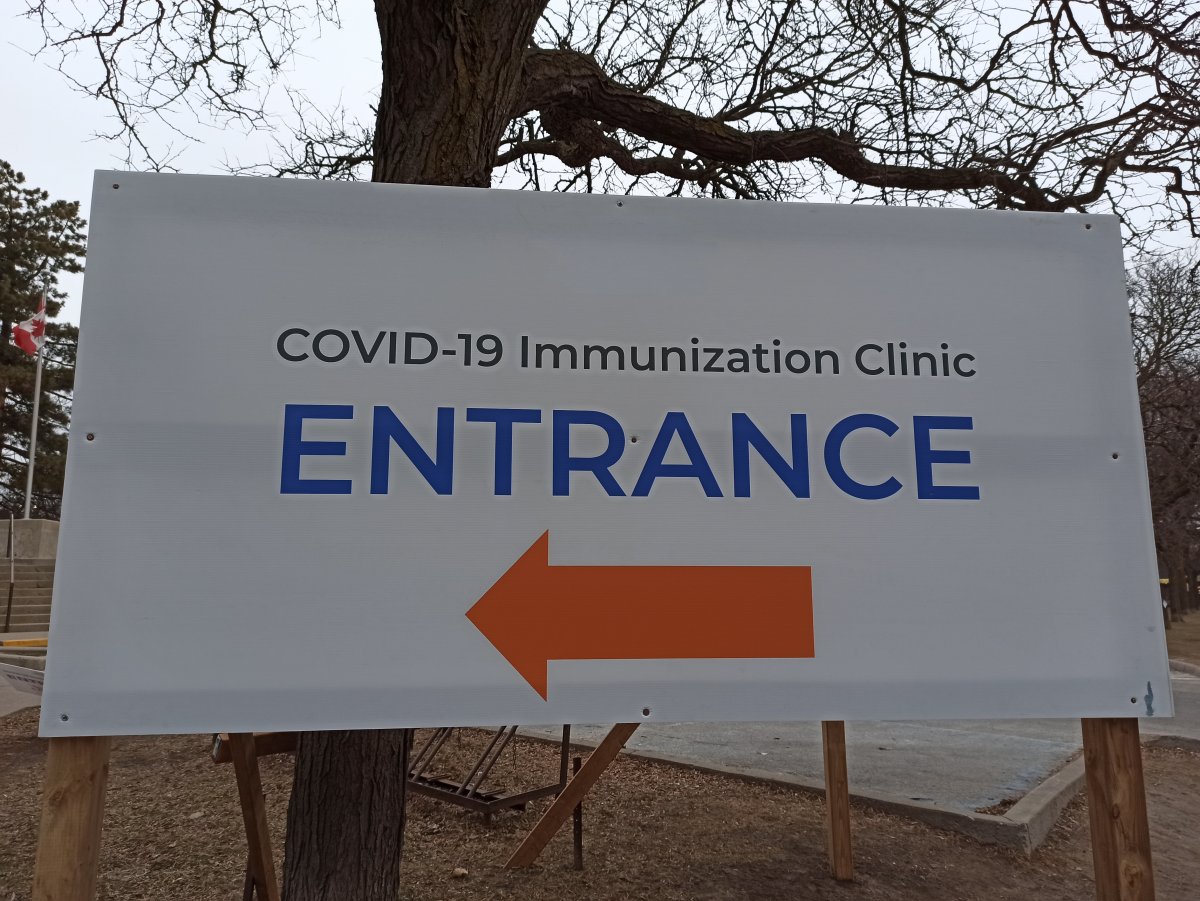Hamilton public health reported 19 new COVID-19 cases on Wednesday and another drop in active cases day over day by 16 to check-in at 180 as of June 16.

More than 68 per cent of the city’s 180 active cases are among people under the age of 50, with about 23 per cent of cases with those aged 19 and under.
There was just a single outbreak reported in the city on Tuesday, at the Salvation Army shelter on York Boulevard involving a single staffer.
Two outbreaks were declared over at a Dairy Queen in Stoney Creek which had five staff cases in a surge that lasted 14 days.
The St. Leonard’s Society Clinton House outbreak also closed on Tuesday after 16 days after recording three resident cases.
Public health is reporting eight outbreaks across the city as of Wednesday involving 36 total cases. Four of the outbreaks are in workplaces tied to 11 cases.
Hamilton’s two hospitals are reporting a combined 38 patients in their facilities with COVID-19, 23 in intensive care units (ICU).
- Canadian man dies during Texas Ironman event. His widow wants answers as to why
- ‘Sciatica was gone’: hospital performs robot-assisted spinal surgery in Canadian first
- Canadians more likely to eat food past best-before date. What are the risks?
- Treatment from female doctors leads to lower death rates, study finds
Hamilton Health Sciences has 20 patients currently admitted for COVID-19 with seven in ICUs.
St. Joe’s has 18 COVID patients with 16 in ICUs.
The city’s reproductive rate — the average number of people an infected person is passing COVID-19 on to — has not changed since checking in at 0.7 last week.
Hamilton’s current seven-day average of COVID-19 cases dropped to 21 on Wednesday day over day from 23.
The city’s test positivity rate dropped again day over day to 3.5 per cent but is still more than double the province’s average rate which is at 1.5 per cent.
As of June 5, Hamilton still has the third-highest reported per cent positivity rate in Ontario behind Peel Region and the Porcupine health unit in Timmins.
Experts keep eye on U.K.'s rising cases amid spread of Delta variant
A number infectious disease experts in North America say they’re eye is on a current surge of cases in the U.K. that has forced prime minister Boris Johnson to delay plans to lift COVID-19 lockdown restrictions by a month.

On Monday, Britain recorded 7,742 new COVID-19 cases and three deaths. Johnson said Britain was seeing cases growing by about 64 per cent per week and the number of people in hospital intensive care was rising.
Professor Thomas Tenkate from the school of occupational and public health at Ryerson University believes the effectiveness of the AstraZeneca vaccine against the Delta variant may have a connection with the country’s current situation.
“The evidence from the U.K. is that it isn’t as effective as the Pfizer vaccine in regards to the dealing with this Delta variant,” Tenkate said.
“So even though they have a large proportion of the population vaccinated, because the vaccine isn’t as effective for that one, they’ve got this high proportion of the population at risk.”
Virginia epidemiologist and biomedical communications consultant Allison Krug says a pair of recent studies including one published by the Lancet on Monday, suggests two doses of the Pfizer-BioNtech vaccine are more effective against the Delta COVID-19 variant than the same amount of doses of the AstraZeneca shot.
Krug says the data shows that Pfizer was 92 per cent effective against the Alpha variant (first identified in the U.K.) 14 days after a second dose and 79 per cent effective against the Delta variant.

“Protection against symptoms was 83 per cent, and protection against hospitalization, which is what we really care about, 96 per cent,” said Krug.
“So these numbers ‘protect against hospitalization’ are comparable between Delta and the previous dominant variant Alpha.”
Tenkate says the news may spur on those who had AstraZeneca for a first shot to look to second shots from one of the mRNA vaccines, Pfizer or Moderna, since Canada’s National Advisory Committee on Immunization (NACI) cleared the way for the vaccines to be safely mixed and matched.
But Tenkate suggests Canadians who have already had two shots of AstraZeneca are in better shape than their U.K. counterparts since despite a rise in the Delta variant, overall cases continue to be generally low.
“I think with the vaccine, if you had the two doses, you still have good protection from the severe outcomes of the Delta variant, such as hospitalization,” Tenkate said. “But you still might suffer some of the both lower and lower-grade effects.”
Currently, Hamiltonians who received AstraZeneca as a first shot can choose to book a second dose of that vaccine at an eight to 12-week interval where they received their first dose.
A second shot of an mRNA vaccine – Pfizer or Moderna – is also an option for AstraZeneca recipients which can be booked through the provincial booking system or by calling the provincial call centre at 1-888-999-6488.
Over 430K Hamiltonians have had a COVID-19 vaccine
As of Tuesday, 71.5 per cent of adults in Hamilton have had at least a single shot of a COVID-19 vaccine with at least 430,000 doses administered to date.
Around 50 percent of youth, aged 12 to 17 years, have received at least one dose as of June 15.
More than 30.2 million COVID-19 vaccine doses have been administered across Canada with 11.7 million in Ontario, as of Tuesday.
Canada is set to receive around 9.5 million COVID-19 vaccine doses this week with 7.1 million coming from Moderna and about 2.4 million doses due from Pfizer.
–With files from Reuters









Comments